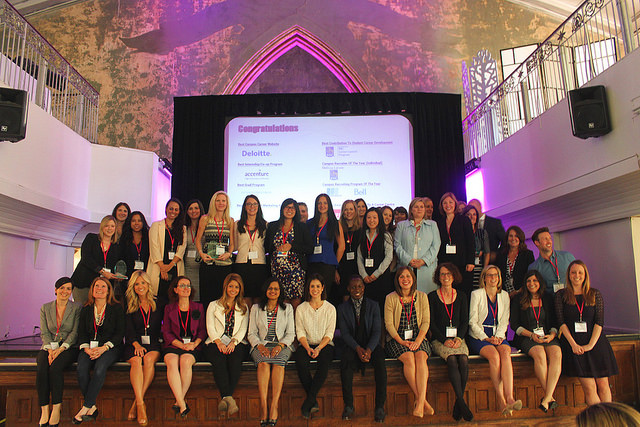Do you remember your first day on the job as a campus or college recruiter?
It may have been a short time or perhaps years ago, but most people remember that feeling of excitement – being high on ambition, and pledging to do their very best to build their company or organization by connecting with great people.
Unfortunately, almost every professional goes through a phase where they become disillusioned with their job. It’s not that they stop producing great work, or the role itself lessens in worth. But people often forget to step back from the details of their day-to-day work and remind themselves of why they chose to pursue this career.
So the question is, are you going through a gray phase with your recruitment career? Here are some symptoms you might be facing.
1. You’re seeing names in your database, not people.
When you’re going through resume after resume, day after day, it can be easy to forget that there is a person behind each application. You focus on the text, but not the sentiment behind it.
Remember that every application takes time to craft – students and grads spend hours researching your organization, and thinking about how they fit best in your company. Behind every file in your database, there is an individual who genuinely wants to work with your team and demonstrate why they’re worth your time.
Take some time to look past their educational background and their previous titles. Think in terms of transferable skills – for instance, if they’re applying for an engineering job, but they only have door-to-door sales experience, consider the fact that many engineers benefit from presentation skills when working with clients.
2. Their seemingly obvious questions feel like a huge hassle for you.
If you are a campus recruiter, you know that you will often get the same questions all day long from many different students. From “what does your company do?” to “how much does this job pay?” you’ll have to answer and sometimes redirect both professional and unprofessional inquiries.
This can get frustrating, especially when you know that all this info is readily available on your website. Perhaps you feel you are interacting with people who are not committed to joining your company because they didn’t prepare or do their research first.
Always remember that there is not a one-size-fits-all explanation when it comes to why candidates ask what they ask. Some individuals might have attended the event on a whim, and perhaps some genuinely might not know that the question they asked was inappropriate. Use your discretion, and remember that most people are acting with their best intentions, and they deserve the benefit of the doubt when being considered for a role with your company.
3. Every interview feels like a re-run.
Being in the “driver’s seat” of an interview can be exciting – but after awhile, you can feel like you’re caught in an infinite loop.
You know what you’re going to ask, and you more or less know what the candidate is going to say. Sometimes, you may feel like they’re making up answers to impress you, using generic phrases like “go-getter” and “hard worker”.
If you’re getting the same answers all the time, it probably means you need to change it up. Don’t ask the same questions all the time – turn your interaction into a two way conversation. Get to know the candidate on a personal level beforehand, and base the questions on what you know about them. Think about the phrasing you’re using in your conversation, or use more scenario-based questions that will force them to draw from their own experiences.
4. You wait for them to impress you, and are let down when they don’t.
Have you ever seen one of those movie scenes where a court jester is tasked with impressing a stone-faced member of royalty? If your interviews are taking on this image, it’s time to make a change.
Students and grads often feel like it’s their job is to make an impression on the campus recruiter, which is absolutely true. However, if they are not receiving any feedback from the person they’re speaking to, their performance will likely be much lower in quality.
Don’t wait for them to come up with a stellar act – meet them part way by interacting with them during the interview. This can be something as simple as a nod, or even a phrase like “I agree.” You’ll find that when the candidate is at ease, they will naturally show what they have to offer.
Discussion: How much of an impact does a campus recruiter’s attitude have on a potential candidate?



